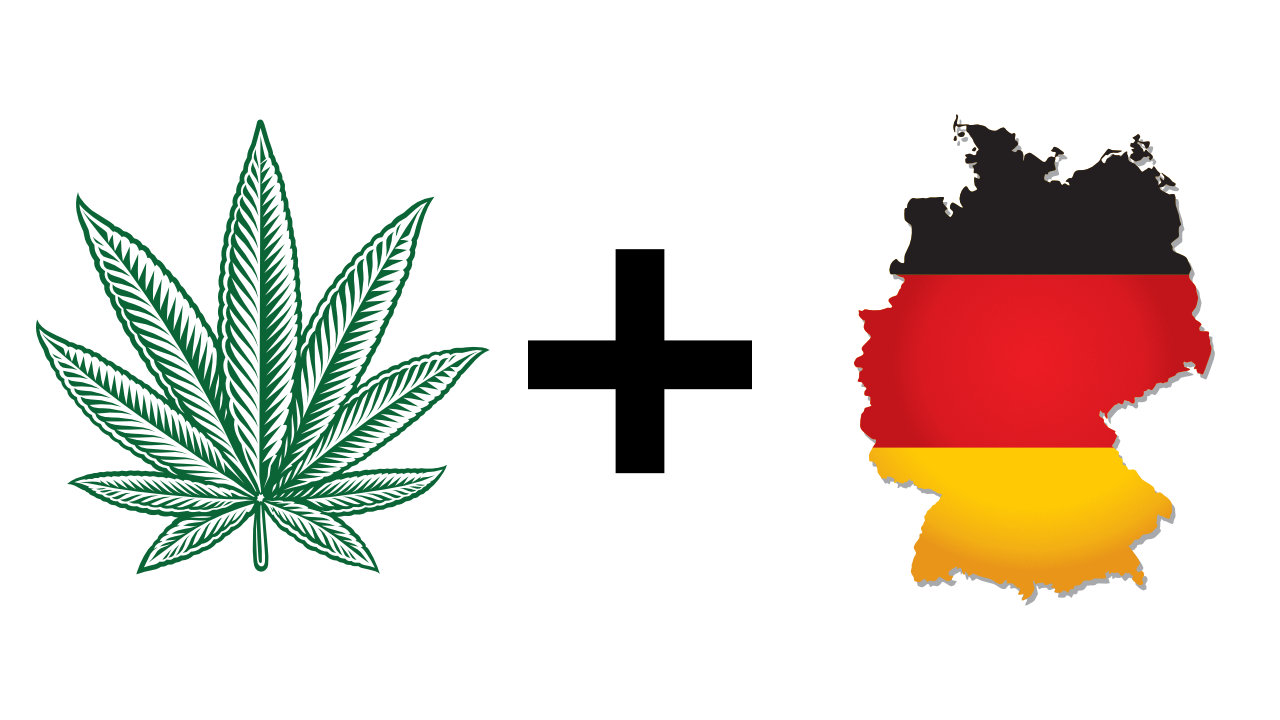Cannabis, Legalisation
Cannabis Legalization in Germany
Cannabis Legalization in Germany
According to a 2015 Eurostat study, around 18 percent of Germans aged between 15 and 24 years reported using pot at least once over the past year. About four million Germans smoke marijuana. More men than women smoke marijuana.
Germans as young as 12 years are smoking pot. Alcohol and tobacco consumption among German youth is decreasing as most young people switch to cannabis. It seems pot is the preferred drug of choice for the youth.
The business of pot is lucrative. The cannabis industry is worth billions of dollars and it is attracting foreign investors.
Recreational Marijuana Use
Cannabis is classified as an Appendix III drug in Germany. That means it isn’t too dangerous to be marketed or prescribed. Heroin is an Appendix I drug; therefore, it shouldn’t be distributed. Cocaine is an Appendix II drug; therefore, it can’t be prescribed.
Punishment for Marijuana Possession or Selling
German law prohibits the growth and distribution of cannabis. Recreational marijuana is considered illegal because of its mind-altering nature. As opposed to medical marijuana, it contains THC, which is the element responsible for the highness. Those in favor of criminalizing pot believe that it has the potential of causing addiction.
• The punishment for possessing marijuana varies depending on the circumstances. One can serve a prison sentence or pay a fine.
A Small Amount
Amendments in the Narcotics Law made possessing smaller quantities of pot a lesser offence. Therefore, an offender can escape prosecution if the amount he possesses is small. If an offender acquires or grows marijuana for personal use, they might escape criminal prosecution.
• The amount of marijuana considered a small amount varies from state to state. In Berlin, it is 15 grams while in North Rhine it is 10 grams.
German law is not very strict on cannabis private consumption. A person who is stopped by a police officer for using pot in public is likely to go scot-free. However, it all depends on the surrounding circumstances. Someone who smokes in front of a school can be charged. Prosecution can only happen if it is deemed to be done in the public interest.
Medical Marijuana
Medical cannabis was legalized by Germany’s parliament in 2017. Before this law was passed, around 1000 Germans had been permitted to use cannabis medically. A cannabis agency was formed to regulate the growth, manufacture, and sale of medical marijuana.
The local production is still low. Therefore, most products are imported from the US. Pharmacies are selling dried marijuana and oil extracted from the plant.
The 2017 law indicates that cannabis should only be prescribed for seriously ill individuals such as individuals suffering from chronic pain and multiple sclerosis. However, the definition of “seriously ill” is vague. The doctor has the leverage to determine whether the condition of a patient warrants a prescription. Patients are encouraged to submit data anonymously to help with further research.
The cost of medical marijuana is not being covered by the leading insurers in Germany. A shortage in the market has made many individuals to seek cannabis products in the black market. This risks endangering public health.
The number of people being prescribed medical marijuana steadily increased since it was legalized in 2017. A few months after the law went into effect, pharmacies were fulfilling over 1,000 orders in a month. Despite the increasing prescriptions, it has been impossible to estimate how many Germans have been positively impacted by this legislation.
There is Growing Advocacy for the Full Legalization of Pot
According to a poll done by the German Hemp Association in 2014, 80% of Germans favored the legalization of medical marijuana while 30% favored the full legalization of cannabis.
The Association of Criminal Officers is campaigning for the complete legalization of pot. The chairman of the association once indicated that the current cannabis law is not constructive.
It seems pot will not remain illegal for long. Law enforcement agencies favor the decriminalization of pot because they consider the arrest of marijuana users to be a waste of time and resources. It is argued that law enforcement should be involved in more vital issues rather than arresting drug users.
The popularity of pot in Germany is another reason that justifies legalization. The current policy of decriminalization encourages users to seek pot in the black market, which poses a public health danger because such pot can have harmful chemicals.
Buying cannabis on the black market increases the risk that people will purchase harder drugs. Proponents of decriminalization suggest that cannabis shops should be opened so that to prevent minors from accessing the drug.
Lobbyists
Many lobby groups are currently lobbying for marijuana to become fully legal. A conservative German politician once indicated that lobbyists are being funded by American investors who are seeing Germany as a very lucrative market where they can sell their pot.
Politicians
The Left Party is one of the liberal parties that are championing legalization. Officials of this party have said repeatedly that the current attitude towards cannabis is outdated and doesn’t hold a place in modern German society. They argue that the risks of decriminalizing marijuana outweigh the benefits. The Green Party holds a similar policy position and they have been working closely with the Left Party.
Merkel’s Christian Democratic Union firmly opposes the legislation. That is the case with many far-right parties including AfD. The Social Democrats have taken no fixed position on the matter; they are open to new ideas.
Conservative politicians who are against legalization argue that THC levels in cannabis have increased greatly over the last 20 years. They say that pot has become more addictive and it is affecting more young people. These politicians also suggest that smoking pot at a young age predisposes a person to mental health problems in old age. They say that pot increases anxiety, reduces attention span, and causes lung damage. These politicians want a policy to be developed that will be used for fighting the use of marijuana.
The Bottom-Line
Over the past three decades, Germany’s narcotic laws have changed greatly. Political interest in decriminalizing cannabis has increased. In the future, marijuana might become totally legal. Many countries are lifting restrictions on recreational marijuana.



Hi,
I am doing some research for a university project about the growth of the cannabis market in Germany. I’m curious to how the distribution part of the cannabis market is structured.
Is it like cannabis production in Germany (where 3 companies produce all of the local cannabis), or do a wider variety of companies make of the distribution segment of the cannabis market in Germany?
Any leads or advice you could give me would be greatly appreciated. Particularly about the names some smaller distributers (if there are any).
Many thanks,
Ollie
I just bought a lemon cake 350 mg funky farms CBD vape it’s got the oils in it and everything I just don’t know how to get it puffin